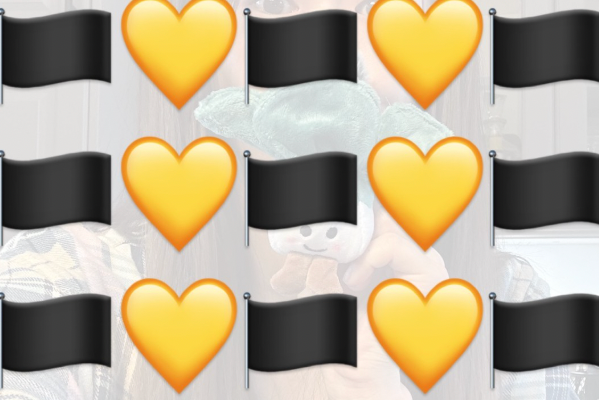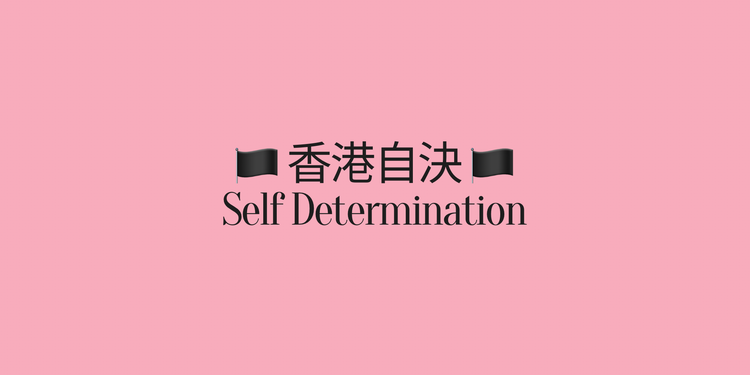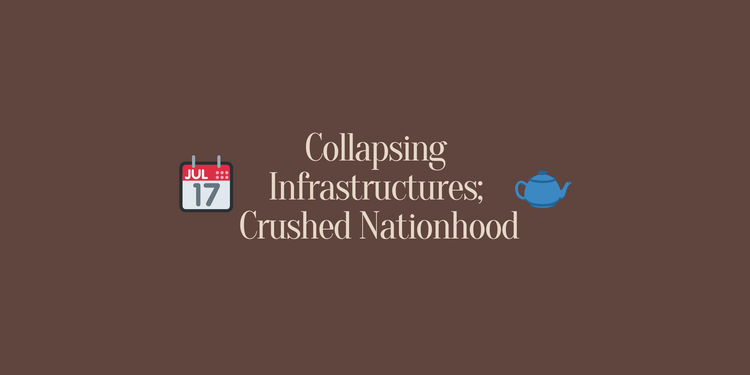📹 Transnational Repression

Dissidents targeted by the Hong Kong Govt are not facing transnational repression
Transnational repression is an invisible pressure experienced by overseas and diasporic individuals - resulting in the practice of self censorship.
Now the HK Govt is strategically targeting a number of high-profile dissidents, activists, and overseas individuals - with criminal charges from HK’s newest national security legislation - Article 23:
- Sweeping powers granted to the nat-sec/policing sector;
- Fewer legal rights for those accused and charged;
- With broad definitions on nat sec vaguely described.
HKG sought to suppress political expression through criminalization - That much is clear. The key takeaway is: a strategic strike at the hearts of the overseas Hongkonger community
Beyond surface issue that specific individuals were the focused target of HK authorities, let’s unpack:
- These charges and warrants wouldn’t sway these dissidents from disengaging from political work, but actually HK govt created additional evidence for these individuals to navigate refugee & immigration pathways, & raised public attention around their individual experience
- What HK govt is actually doing is further scaring Hongkongers who are pro democracy but are not actively engaged in political work
- By raising the cost to be dissident, even less HKers will be willing to speak up against the govt. this is the essence of transnational repression.
Lateral surveillance is one of the ways that enable transnational repression.
- Diaspora are forced into a choice: stick or carrot
- Start with the most obvious - you can be arrested for not speaking up
- Awards offered (not even enough $ to buy a 1BR apt in HK)
- Cultivates fear and silence amongst the diaspora
- This phenomenon was long observed with PRC international students.
For most Hongkongers who do not have a high-profile and public following, they are forced to negotiate what degree of political expression they are comfortable with. Unlike dissidents and community elites, most of the community will never receive any attention from govt officials or politicians.
I have nothing but compassion and empathy for diaspora community members, whether they choose to be actively defiant or politically apathetic. Transnational repression is the ongoing unsafe social environment that awards compliance with the authorities, normalize self censorship, and threaten those who break the silence.
- The most obvious is self censorship: not speaking up against HK govt, not going to protests, not donating money to dissident orgs
- Or those who are active in dissident work felt pressured to hide their identity
Everyone has to decide what risks they are willing to undertake. Most in the diaspora are risk-adversed:
- Overseas HKer community is in a vulnerable position: Most had yet to obtain formal and permanent residence status from their host country;
- Some had elderly relatives, personal or work reasons
- We have to accept that everyone operates in varying degree of risk tolerance, and make accommodations for folks with different needs
Instead of catching ghosts, I urge Hongkongers need to build stronger community foundation
- The road to liberation is long - and if hongkongers want a future of self determination, we need diverse social infrastructures and strong communities.
- There is no national building without a strong foundation as a community.
For those of us thinking about nation building - or at the very least - advancing to a future of self determination: the first and most important step is to build up community resilience.
- Community orgs that are positioned to offer social service support - like mental health, immigration, employment
- They can ensure there is safe space for HKers to come together as a community, even if the org is actively non political
- Develop identity as a diaspora community, as well as building relationships with local communities in your host country (this builds Hongkonger community’s soft power)
- Grassroots dissidents who challenge the few elitist orgs’ resource hoarding and sense of self righteousness.
- Part of the underdevelopment of HKer community is due to the pattern of big stage centralization, bullying, and exploitation
To strengthen the community, we need to break this pattern of centralization:
- Share power instead of hoarding it;
- Stop gatekeeping information;
- Safeguard a space to strengthen Hong Kong’s cultural and social identity.
—
📝 Reference List 📝
Alliance Canada Hong Kong (2021). "In Plain Sight: Beijing’s Unrestricted Network of Foreign Influence". https://alliancecanadahk.com/achk-releases-new-report-on-foreign-influence-activities-in-canada/
Amnesty International (2024). "What is Hong Kong’s Article 23 law? 10 things you need to know" https://www.amnesty.org/en/latest/news/2024/03/what-is-hong-kongs-article-23-law-10-things-you-need-to-know/
Amnesty International (2024). "China: “On my campus, I am afraid”: China’s targeting of overseas students stifles rights" https://www.amnesty.org/en/documents/asa17/8006/2024/en/
Cambridge Dictionary (2025). “Soft Power” https://dictionary.cambridge.org/dictionary/english/soft-power
Hans Tse (2024). "Hong Kong national security police issue HK$1 million bounties for 6 ‘fugitives’" Hong Kong Free Press. https://hongkongfp.com/2024/12/24/breaking-hong-kong-national-security-police-issue-hk1-million-bounties-for-6-fugitives/



Comments ()